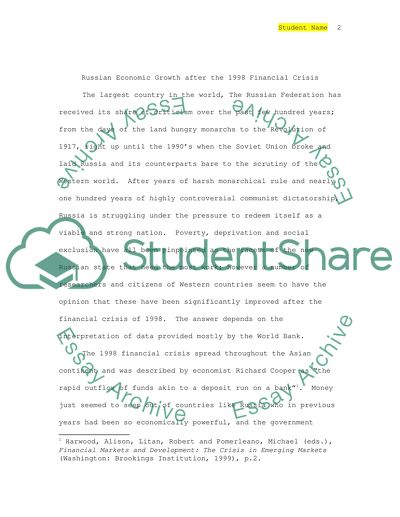Cite this document
(“Russian Economic Growth since 1998 Essay Example | Topics and Well Written Essays - 2500 words”, n.d.)
Retrieved from https://studentshare.org/politics/1521973-russian-economic-growth-since-1998
Retrieved from https://studentshare.org/politics/1521973-russian-economic-growth-since-1998
(Russian Economic Growth since 1998 Essay Example | Topics and Well Written Essays - 2500 Words)
https://studentshare.org/politics/1521973-russian-economic-growth-since-1998.
https://studentshare.org/politics/1521973-russian-economic-growth-since-1998.
“Russian Economic Growth since 1998 Essay Example | Topics and Well Written Essays - 2500 Words”, n.d. https://studentshare.org/politics/1521973-russian-economic-growth-since-1998.


